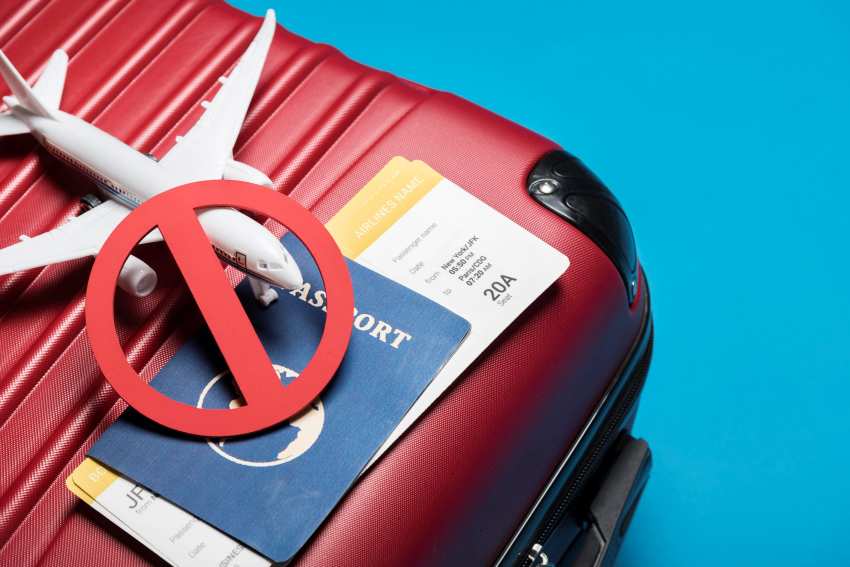How Long Can a Fugitive Stay Hidden? The Limits of Disappearance - Newstrail
— From drug lords in South America to whistleblowers in Eastern Europe and white-collar fugitives in Southeast Asia, the act of disappearing has evolved from a shadowy art into a high-stakes digital game. But how long can someone truly remain hidden in 2025?
As surveillance technologies grow increasingly interconnected, disappearing without a trace seems nearly impossible. Yet, every year, hundreds of individuals evade detection through a combination of legal maneuvers, jurisdictional loopholes, and identity restructuring. Amicus International Consulting, a leader in and second passport strategies, has advised high-risk clients on how to disappear lawfully—and more importantly, how to stay out of sight.
Today’s fugitives are not all hardened criminals or cartel bosses. Many are professionals, political dissidents, journalists, or entrepreneurs caught in complex legal or geopolitical crossfire.
What defines a modern fugitive is not guilt, but the perceived threat. Whether fleeing state retaliation, corrupt legal systems, or asset seizure, these individuals are increasingly seeking structured, long-term anonymity.
“Not every client we assist is a fugitive in the criminal sense,” said a spokesperson for Amicus International. “Some are defending their lives, families, and freedoms from unjust systems. Disappearance isn’t always about escape—it’s about survival.”
Disappearing for days is easy. Weeks? Manageable. But disappearing for years—or indefinitely—requires strategic layering across every part of a person’s identity and digital footprint.
Amicus categorizes disappearance timelines into three phases:
This is the most dangerous period. Law enforcement agencies issue immediate alerts, INTERPOL Red Notices, border flags, and passport invalidations. Travel must be carefully planned with:
An Eastern European banker facing politically motivated prosecution fled to Southeast Asia using a Caribbean passport obtained through legal Citizenship by Investment (CBI). He arrived before his home government could request a Red Notice, effectively shielding himself from immediate arrest.
At this stage, agencies shift from active pursuit to passive surveillance. The fugitive must now avoid exposure through:
Survival during this phase depends on maintaining structured routines, including legal residence, local identification, anonymous payments, and clean device use.
A whistleblower from a North African country lived quietly in the Balkans for 18 months under a new legal name. Amicus helped her obtain a work permit, lease, local tax number, and SIM registration in a country with . She created a life with no flagged transactions.
If a fugitive remains undetected for five years, the odds of capture drop significantly. However, this requires:
Amicus estimates that of every 100 clients who successfully vanish, only 12 remain entirely off the grid beyond five years. The majority are caught due to human error, not surveillance.
A South American investor wanted in a politically engineered fraud case lived in Central Asia for over a decade under a new identity. With Amicus’ help, he established a media company, employed residents, and operated under a legitimate passport obtained through investment. He was only discovered when he voluntarily returned to a jurisdiction with an active Red Notice.
Even the most carefully planned disappearances are now at risk due to:
These technologies drastically reduce the window for safe, anonymous travel. However, they are not yet universal. Many countries still operate with minimal biometric infrastructure, poor enforcement, or weak international cooperation.
Amicus Consulting does not condone or enable illegal flight from justice. Its clients undergo legal reviews, background vetting, and work within the following legal frameworks:
A Southeast Asian tech journalist, who was targeted by state surveillance for exposing spyware corruption, sought legal relocation. Amicus coordinated asylum documentation, provided assistance with legal identity changes, and placed her in a media nonprofit in South America, where she continues to operate under legal protection.
Amicus maintains a live matrix of jurisdictions ranked by surveillance intensity, extradition risk, and privacy protections. Among the most viable locations in 2025:
AI-driven manhunts have improved capture rates but still face limitations. Algorithms detect patterns, but they are imperfect in the face of behavioural masking, deliberate disinformation, and systems trained on outdated data.
Amicus counters AI tracking through:
An Australian activist flagged by border control in Europe used stylometry-rewriting software and VPN-managed account access. Her digital presence became untraceable within six months.
Long-term disappearance has severe emotional consequences. Clients often report:
To support clients, Amicus provides:
“You need plastic surgery to disappear.”
A legal name change and facial hair alteration can be enough to defeat low-resolution surveillance systems in developing countries.
“Only criminals disappear.”
Many clients are whistleblowers, fraud victims, or persecuted minorities.
“Interpol tracks everyone globally.”
Red Notices are not warrants. Many countries do not act on them, especially without dual criminality or judicial approval.
Most disappearances end not because of surveillance, but because of:
Returning to jurisdictions with active legal warrants
Careless biometric exposure (e.g., selfies, public CCTV)
A Canadian lawyer disappeared successfully for three years until he attended a cousin’s wedding in Spain. Facial recognition at immigration matched his photo from his old passport. He was detained within minutes.
In 2025, disappearing is harder, but not impossible. For those with legitimate cause—those facing persecution, unjust arrest, or political targeting—strategic disappearance offers a chance at life, freedom, and dignity.
Amicus International Consulting continues to defend the right to privacy, mobility, and legal reinvention. They offer lawful paths for those who need to escape, not to break the law, but to avoid being broken by it.
Phone: +1 (604) 200-5402
Email: [email protected]
Website: www.amicusint.ca











